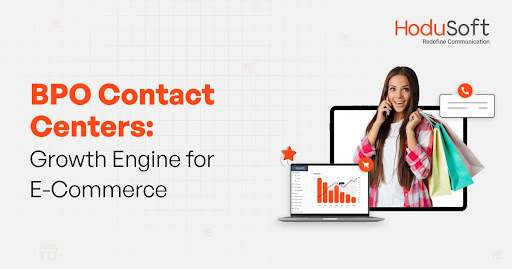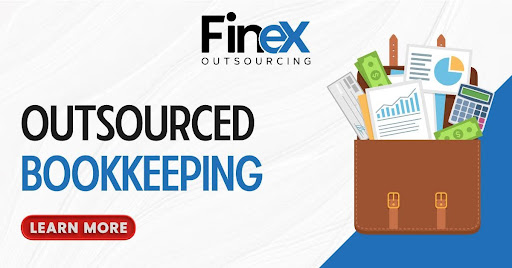Leveraging BPO Contact Centers to Drive Growth in the Competitive E-Commerce Landscape

“Communication is at the heart of e-commerce and community.” The quote by Meg Whitman, the current U.S. ambassador to Kenya and the former President and CEO of Hewlett-Packard and eBay, highlights the importance of communication and customer service in the online commerce space.
As the e-commerce sector continues to grow, businesses in the industry need reliable communication solutions to handle the large volume of inbound and outbound calls. As per a report by Mordor Intelligence, the global e-commerce market is projected to grow at a compounded annual growth rate of 15.80 percent from USD 8.80 trillion in 2024 to USD 18.81 trillion by 2029.
In such a scenario, it’s prudent for e-commerce companies to outsource customer service operations to BPO contact centers that use reliable and sophisticated call center solutions and contact center software.
This blog post discusses the various challenges e-commerce companies face and how BPO contact centers that leverage the right contact center solution can help them overcome the challenges. Read on and thank us later.
Challenges Faced by E-commerce Businesses
Despite many opportunities over the last four years, e-commerce businesses face a lot of challenges. Here we have discussed five major challenges faced by e-commerce businesses.
1. Intense Competition
Let’s be honest; the competition in the e-commerce sector is growing with each passing day. Many players are joining the bandwagon every day and competing against each other for shoppers’ attention. It’s not only leading to price wars and diminishing profitability but also higher costs. A recent LiveIntent survey showed that 85 percent of e-commerce players and marketers are concerned about increasing costs of ads and half of them said that they’ll be priced out if the costs continue to increase.
2. Customer Retention and Loyalty
As discussed in the above point, not only is the competition in the e-commerce space on the rise but the customer acquisition costs also. The Live Intent survey throws light on the growing customer acquisition costs. As per many industry experts, the customer retention rate for the e-commerce industry is between 20 and 30 percent. That means, only two or three customers out of ten are likely to remain with an e-commerce player for more than a year. It’s on the lower end when compared to other industries.
3. Cybersecurity Threats
A stat published on the Threat Intelligence.com website revealed that 54 percent of e-commerce companies experienced at least one successful cyberattack, data leak, and fraudulent activities, and just 38 percent of them were able to handle the attacks successfully. E-commerce companies deal with a huge number of sensitive personal data and financial information of customers. That makes them susceptible to cyberattacks.
4. Providing Effective Customer Service
Since 2010, the global e-commerce industry started booming but the exponential rise started after the COVID-19 pandemic. With customers locked in their homes, the e-commerce industry delivered essential goods (food, medicines, fuel, and more) and services and saved thousands (or millions) of lives. The focus on customer service made a huge difference. As a majority of e-commerce players offer similar products, prices, and deals, customer service can be a key differentiator.
5. Changing Digital Landscape
E-commerce companies rely heavily on the digital ecosystem and the rapidly evolving digital landscape and innovation of emerging technologies such as generative Artificial Intelligence (AI) and Machine Learning (ML) can be a huge challenge for many. If e-commerce companies are not able to leverage the new technology to their advantage, then they will be left behind the curve. That’s why e-commerce companies not only need to leverage new technology but also use it to predict customer behavior and provide customer service.
The Role of BPO Contact Centers in E-Commerce
BPO contact centers play a huge role in the e-commerce sector and many e-commerce companies are realizing this. Here are seven roles BPO contact centers play in enhancing e-commerce businesses’ customer service:
1. Fast Response and Resolution
The main reason e-commerce players depend on BPO contact centers is to handle customer queries efficiently, provide fast responses, and resolve their problems. Many e-commerce companies also take orders over the phone, instant messages, text messages, email, and other communication channels. By doing so, they not only make the shopping process faster but also far more convenient for customers.
2. 24/7 Omnichannel Support
Many retail stores and brick-and-mortar shops work for certain hours. For instance, 7-Eleven retail chain stores, as the name indicates, remain open from 7 am to 11 pm the entire week. Apart from that, very few remain open for such extended hours. But not e-commerce stores. They work for 24 hours a day, seven days a week. BPO contact centers that use advanced contact center software can enable e-commerce businesses to provide round-the-clock omnichannel support to customers.
3. Personalized Customer Interactions
Would you be surprised if we tell you that a majority of customers would be more likely to shop from an e-commerce website if they receive tailored services? As per several studies, customers would not just shop more from an e-commerce player that offers personalization. But they are more likely to remain loyal and become repeat buyers. At present, the main segment of customers, which is the Gen Zers, are more interested in personalization than Gen Xers and Baby Boomers. That’s why it makes much more sense for e-commerce companies to provide personalized customer interactions and BPO contact centers can help them with just that.
4. Collecting Customer Feedback
Collecting customer feedback is extremely important for BPO companies as it can mean the difference between paying attention to what customers have to say about your business and making changes accordingly to achieve desired results and continue doing what’s being done and stagnate. BPO contact centers can be extremely useful in collecting customer feedback as they can optimize their contact center software and call center solutions to capture customer feedback.
5. Scalability and Flexibility
E-commerce businesses experience peak seasons as well as lean seasons. During the former, they should not just be quickly able to scale up their operations but also customer service and provide customers the assistance they need. BPO contact centers help e-commerce companies to scale up and scale down their customer service operations whenever they need to.
6. Cost Efficiency
E-commerce companies need to be as cost-efficient as possible. That’s because a majority of them compete on price, quality of product and service, and many other factors. And if they keep their costs under control then they can be more efficient and pass on the benefits to their customers. BPO contact centers enable them to achieve just that. By outsourcing their customer service activities to BPOs, e-commerce businesses don’t need to maintain an in-house customer support team or make major capital-intensive investments.
7. Order Processing and Management
Did you know that two out of every five online shoppers will abandon their cart if the orders take more time to process? A recent study revealed that. Another stat found only three out of every five e-commerce companies can manage their inventory accurately. In such a scenario, if e-commerce businesses outsource their customer service to BPO contact centers, they can manage and process customer orders effectively.
Taking Everything Into Account
BPO contact centers play a huge role in providing high-quality customer service to e-commerce businesses. If you own an e-commerce company then you should consider outsourcing your customer service activities to a reputable and reliable BPO contact center that leverages sophisticated contact center software and solutions.









